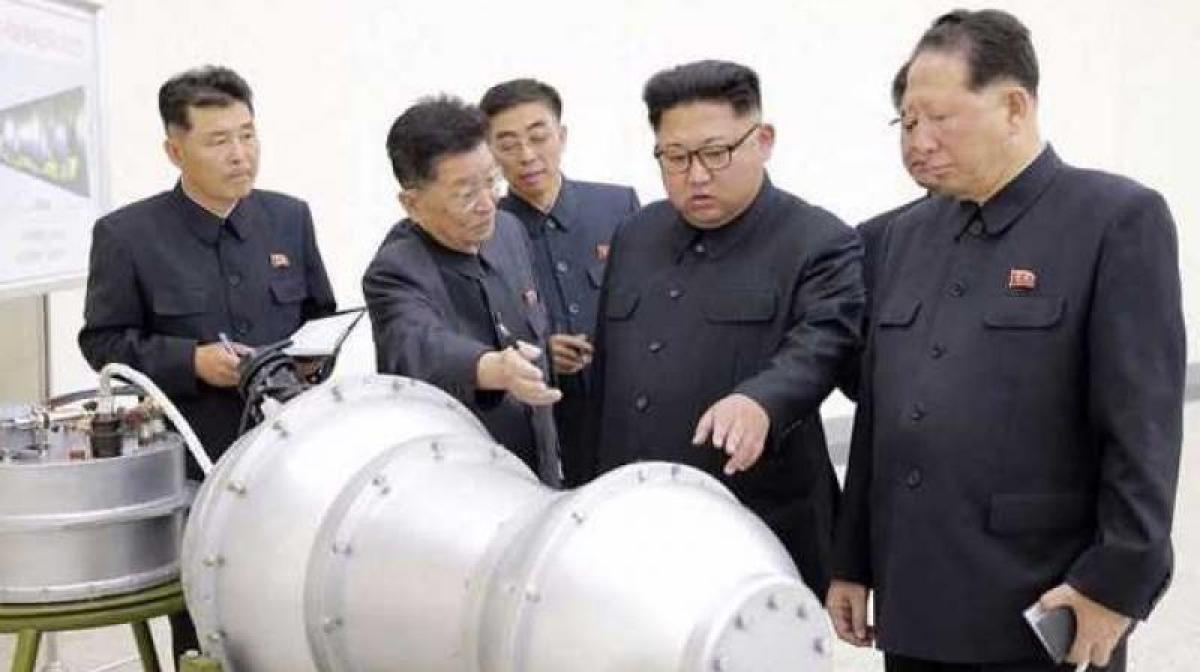Live
- 555th Prakash Purab celebrated with gaiety
- Good news for Atmakur farmers
- High-risk aortic valve replacement surgery performed successfully
- HMWSSB MD holds review meeting on OTS-2024 scheme
- Dhobi Ghat assessed for potential to host sports complex
- SCR bets on LHB train coaches for safety
- SVU felicitates best teachers
- Tata Group to market Araku coffee
- Union Min assures development of infra in tribal mandals
- KTR, Harish will turn political rivals soon: TPCC Chief
Just In

“This ban will eventually starve the regime of an additional $500 million or more in annual revenues,” she said.
Major US allies in Asia welcomed on Tuesday the UN Security Council’s unanimous vote to step up sanctions on North Korea, with its profitable textile exports now banned and fuel supplies to the reclusive North capped after it its sixth nuclear test.
Japan and South Korea said after the passage of the US-drafted Security Council resolution they were prepared to apply more pressure if Pyongyang refused to end its aggressive development of nuclear weapons and ballistic missiles.
Monday’s decision was the ninth sanctions resolution unanimously adopted by the 15-member Security Council since 2006 over North Korea’s ballistic missile and nuclear programs.
A tougher initial US draft was weakened to win the support of China, Pyongyang’s main ally and trading partner, and Russia, both of which hold veto power in the council.
“We don’t take pleasure in further strengthening sanctions today. We are not looking for war,” US Ambassador to the United Nations Nikki Haley told the council after the vote. “The North Korean regime has not yet passed the point of no return.”
“If it agrees to stop its nuclear program, it can reclaim its future ... if North Korea continues its dangerous path, we will continue with further pressure,” said Haley, who credited a “strong relationship” between US President Donald Trump and Chinese President Xi Jinping for the successful resolution negotiations.
UN member states are now required to halt imports of textiles from North Korea, its second largest export after coal and other minerals in 2016 that totaled $752 million and accounted for a quarter of its income from trade, according to South Korean data. Nearly 80 percent went to China.
“This resolution also puts an end to the regime making money from the 93,000 North Korean citizens it sends overseas to work and heavily taxes,” Haley said.
“This ban will eventually starve the regime of an additional $500 million or more in annual revenues,” she said.

© 2024 Hyderabad Media House Limited/The Hans India. All rights reserved. Powered by hocalwire.com







